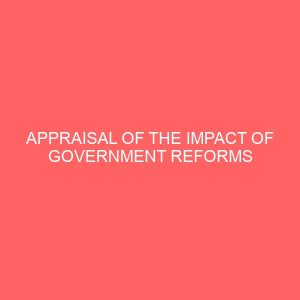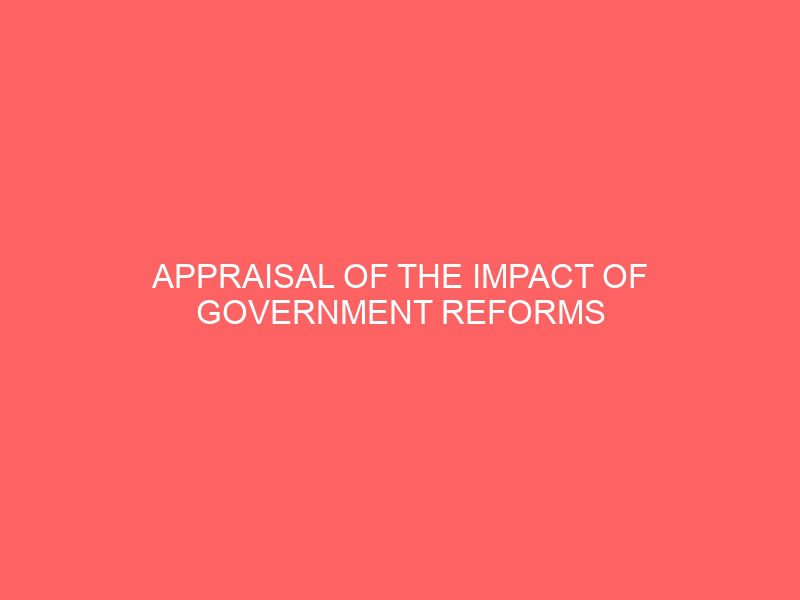Description
CHAPTER ONE
1.0 INTRODUCTION
1.01 BACKGROUND OF THE STUDY
Over the years, Nigeria economy has witnessed a lot of dynamic changes in its economic policies in order to attain a macroeconomic stability. Each administration has come up with different economic policies that are believed to be suitable for the economic environment of that particular period. It has been observed with keen interest over the years that some of these economic policies are not realistic in a depressed and battered economy as what is obtained in Nigeria. It could be formulated and analyzed in theoretical framework but not in practice because of the implementation processes or lack of it. More so, some of these policies were not fully implemented. In some cases, the federal government and the authority involved in formulation and implementation of these policies did not adhere to the laid down rules and regulations while implementing these policies. And this inefficiency on the part of the administrators, provide a major reason why these sound economic policies designed to solve our macro economic problems have continuously failed to yield the desired results.
In this research, it is not only the formulation and implementation of these policies that really matters but also the impacts and implications of these policies on financial institutions in Nigeria. Here, the changes and modifications in these policies and how they affect managerial decisions of these financial institutions in order to achieve their aims and objectives and also to achieve a general economic development of the country, would be looked into. Also, the impact of these government economic policies on project financing, production, capacity utilization, sales and revenue of the institutions would be examined. Most financial institutions find it difficult to make a longrun projections into their activities in the future. This is because of the changes in government economic policies. Although, in any serious economy, government must make some changes in its economic policies, but there must be some elements of consistency in these policies which are best determined by the prevailing economic situations in such a country.All these policies were formulated and implemented in order to increase the employment opportunities, reduce inflation, increase capacity utilization, price stability and general economic wellbeing of the citizens. But in most cases, the reverse is the case in Nigeria. Most financial institutions especially banks were completely closed down due to harsh economic climate which must have been as a result of lack of adequate capital to remain in business.
1.1 STATEMENT OF PROBLEM
The Nigerian monetary Authority Central bank in conjunction with the federal government and its executive arm, has made it difficult for an average investor to understand the fundamental government macro economic policies. This is due to the dynamic changes and the inconsistency observed every year in government economic policies both monetary and fiscal policies which in most cases, are included in the years budget.Governments at various levels federal, state and local governments are often being critized for their failure in adhering to long term economic policies with little adjustments to suit the changing economic climate. And this inconsistency in government economic policies has made it difficult if not almost impossible, for private and public sectors alike to make a long run projection into their organizations activities








Reviews
There are no reviews yet.